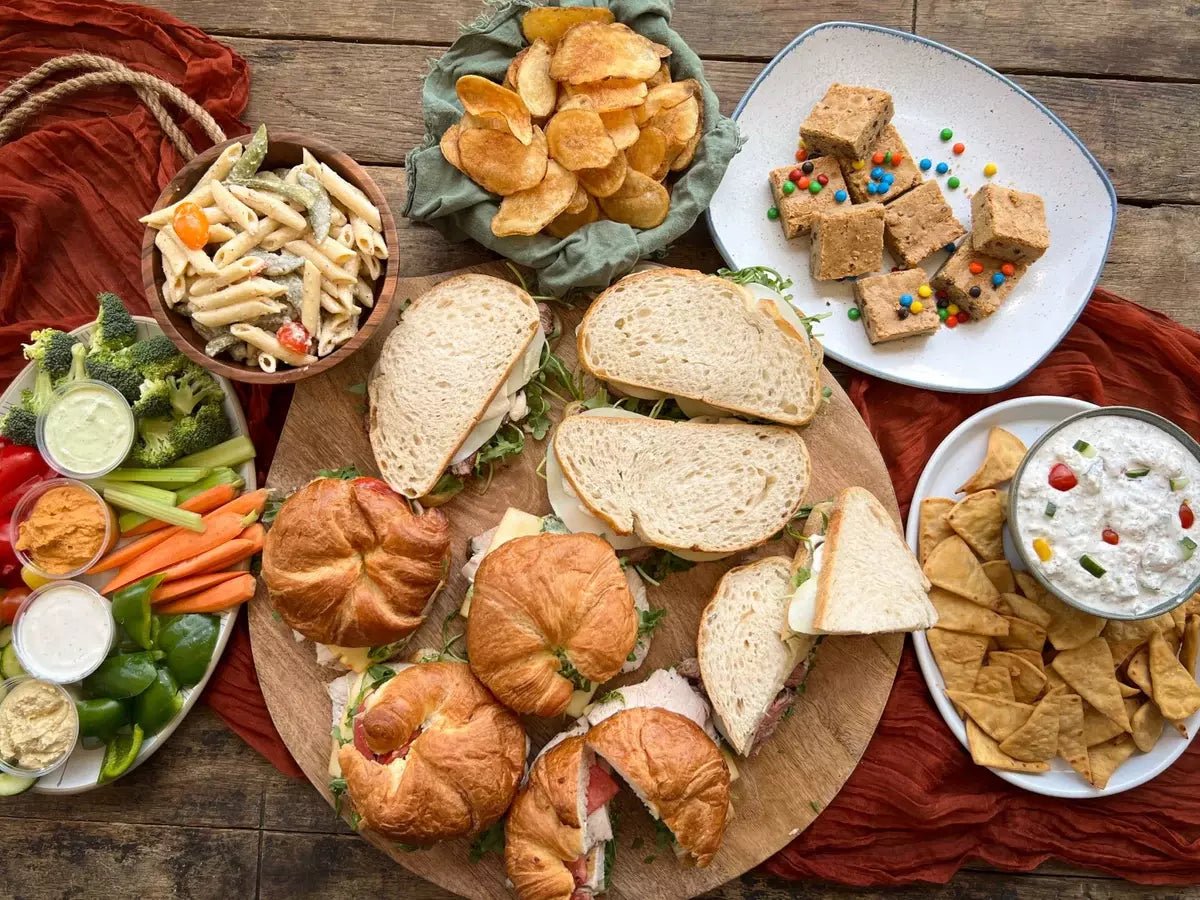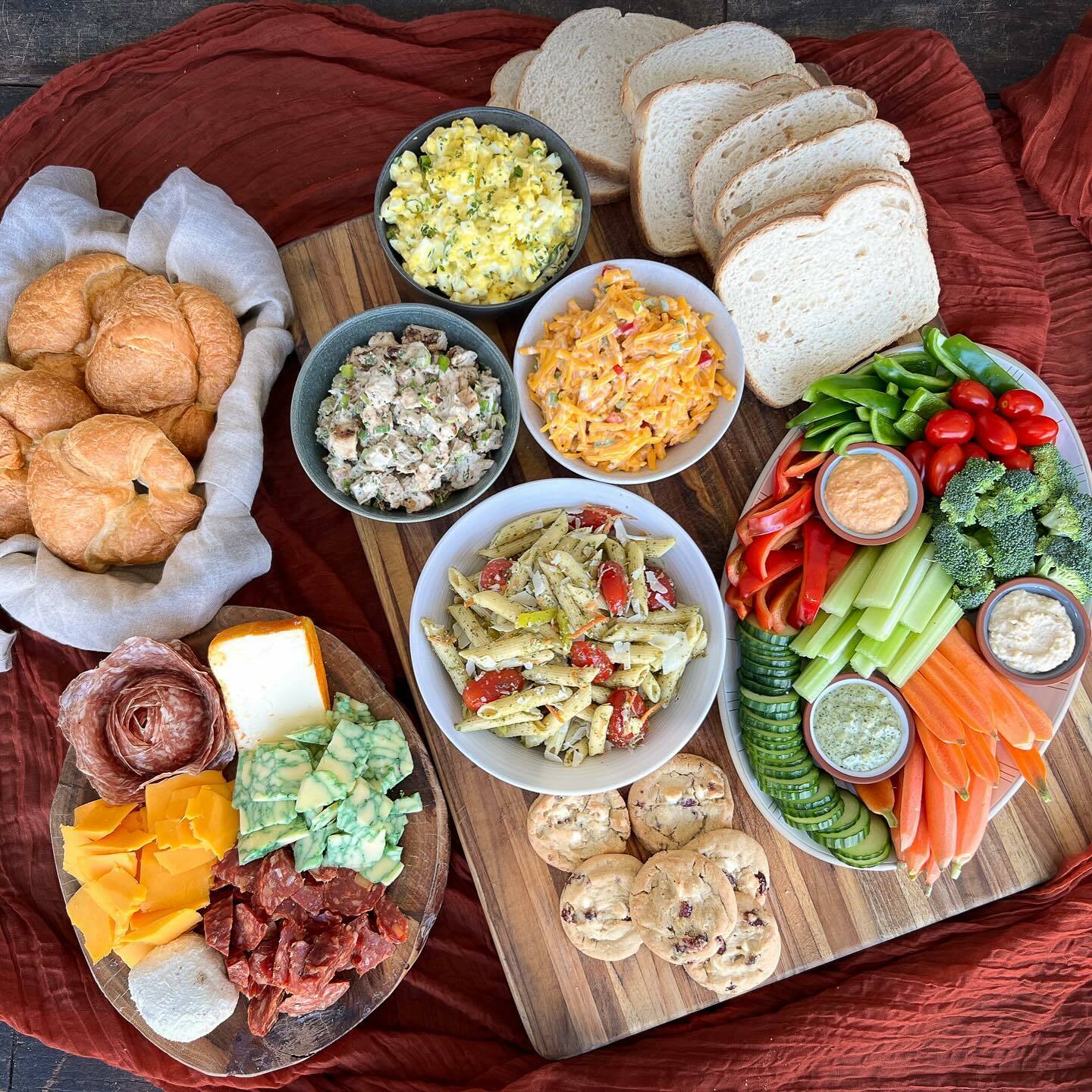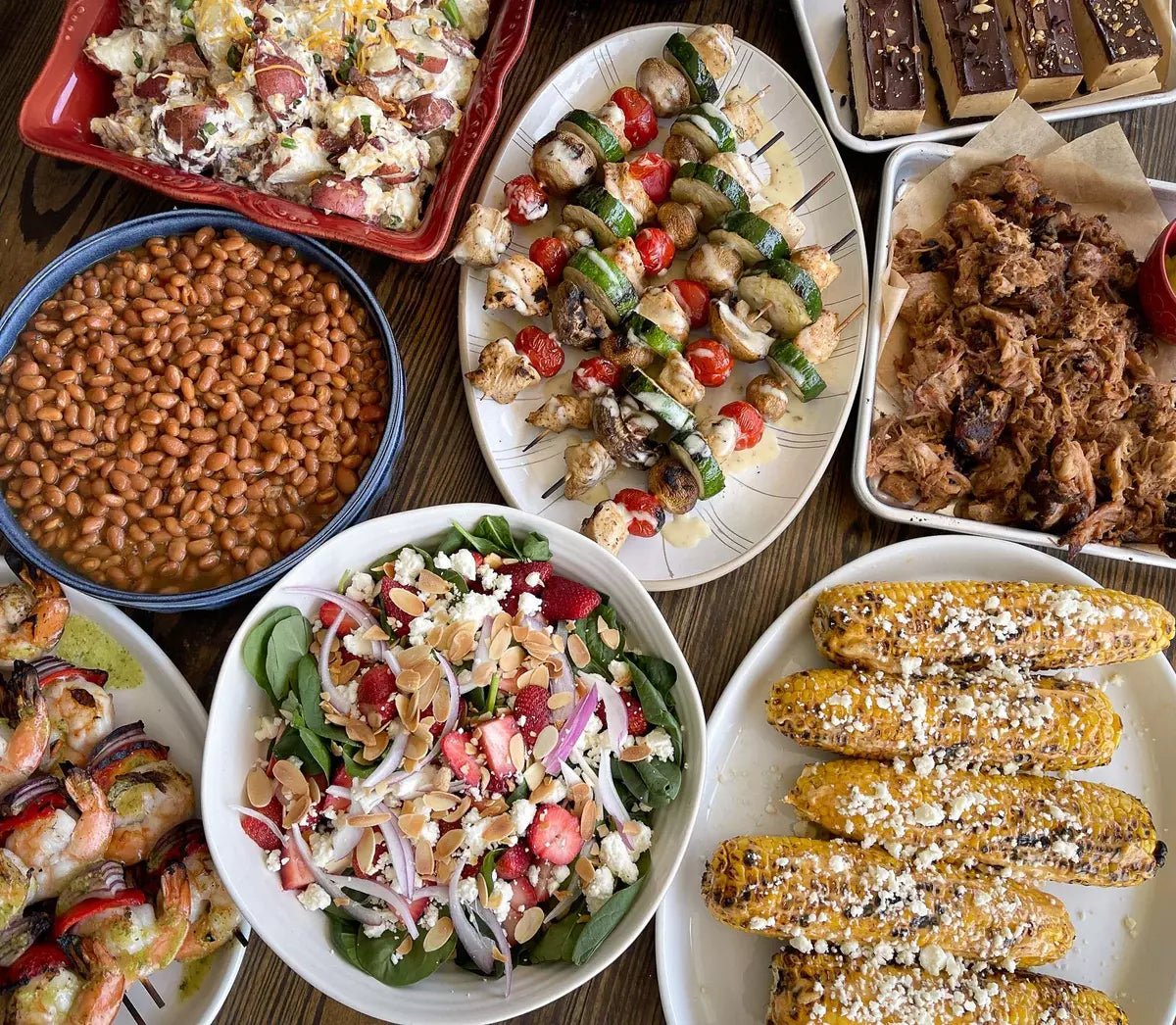
by the Table & Twine Culinary Team
As we head into fall and football season, our culinary team shares favorite tips for a great afternoon of grilling!
Chances are that you will be doing a lot of grilling this fall. Our experts offer tips you may not know about the art of grilling.
- Let the meat reach room temperature before putting it on the grill!
Better grilling begins with room temperature meats. When meat is too cold, the high heat shocks it and hinders the cooking process, preventing it from cooking well. It will cause a distinct temperature difference between the outside and inside of the food.
- Brush your grill with an oil-soaked towel to prevent sticking.
Take an old dish rag or wash cloth, roll it like a burrito, then tie it to hold it together. Using tongs, take the rolled towel and soak it in vegetable oil or another high heat oil before rubbing it over the grates on the grill.
- Get your grill screaming hot!
Thermometers are a great tool to gauge how hot your grill is before you add your meat. Most grilling thermometers reach a maximum of temperature of 500-700 degrees, much lower than the ideal temperature to start cooking. If your thermometer does not have a high range, let it hit the maximum reading then wait another 10-15 minutes before adding the meat. Once the grill is hot, it also is helpful to identify the different areas of your grill that run hotter than others for when you have multiple items to prepare.
- Make sure your beers are on ice!
Nothing goes together quite like grilling and drinking a cold beer so remember to ice down your beers or favorite beverage before the grilling and games begin!
- Let the meat rest for 10-15 minutes after cooking it.
Meat is predominantly liquid. When liquid is heated (think boiling water), it moves around quite a bit and pressure builds. This essentially is what is happening in meats when they are cooking. If you don’t let the meat rest before it is cut, all of that liquid circulating inside will rush to the point of pressure release, where you cut the meat. Losing too much liquid results in a dryer product.




